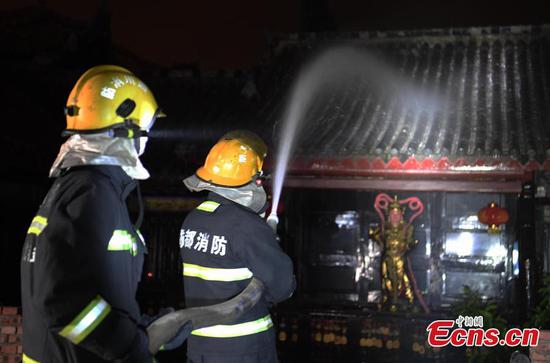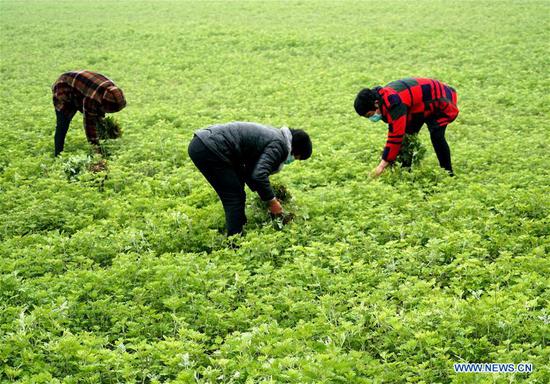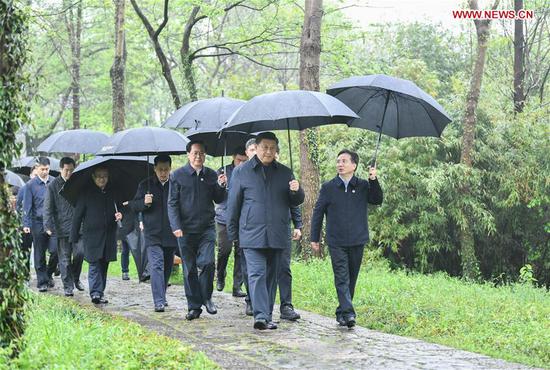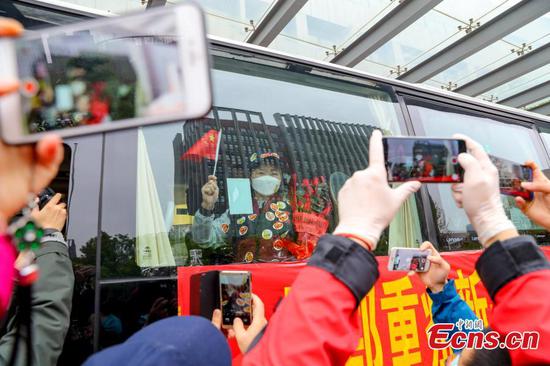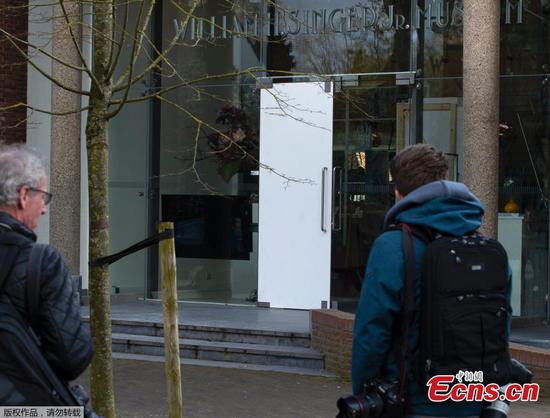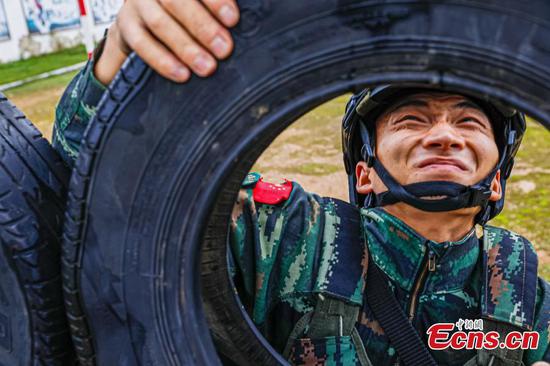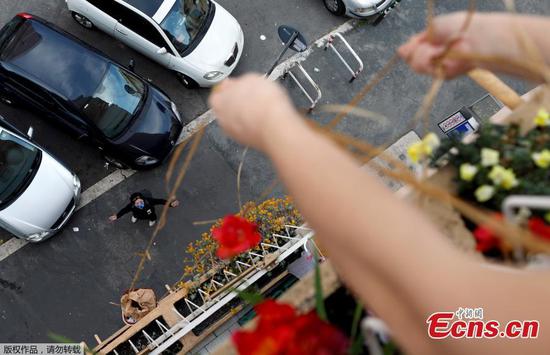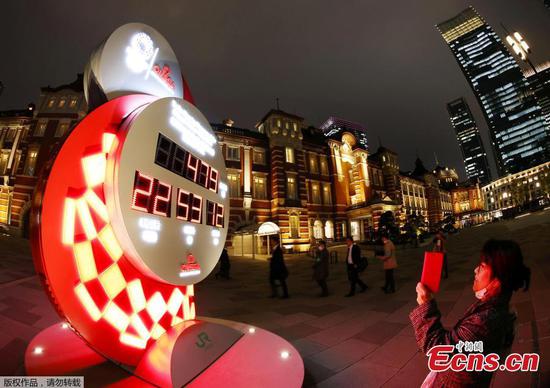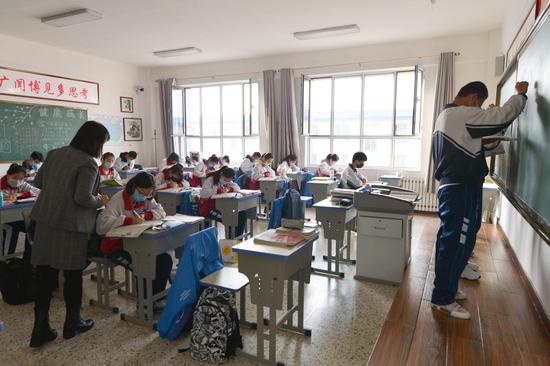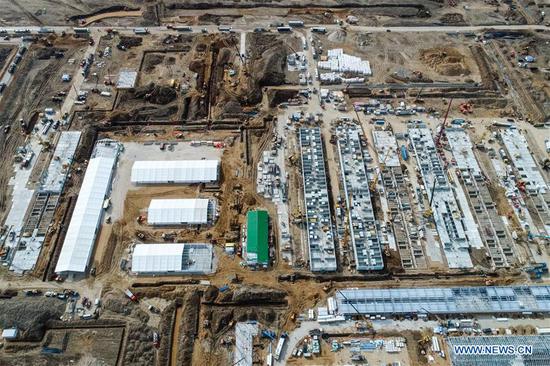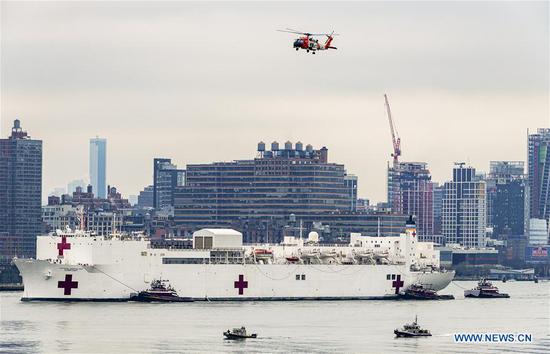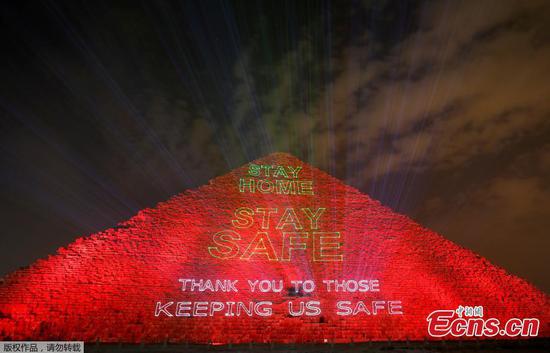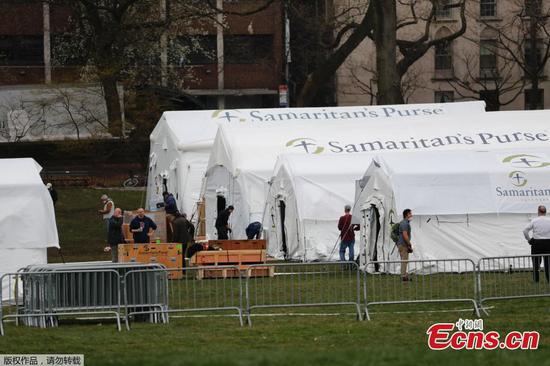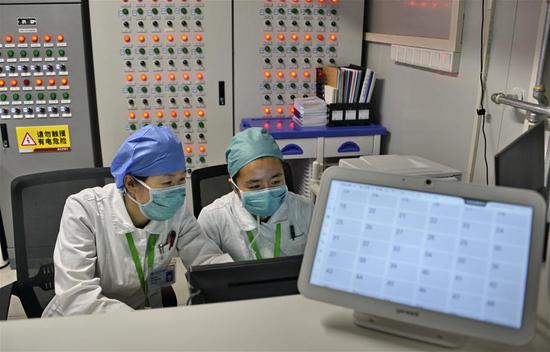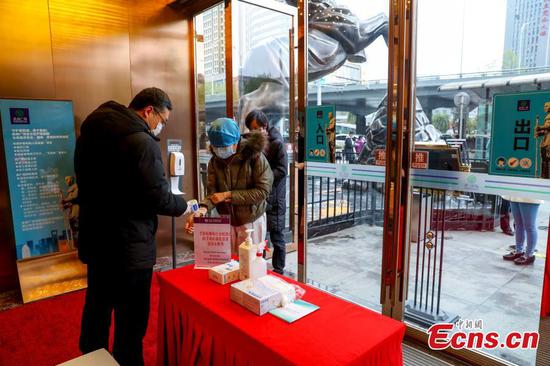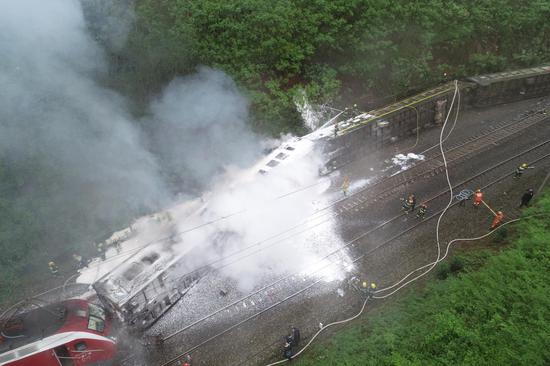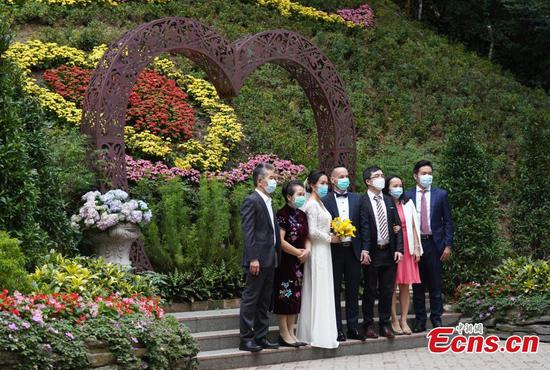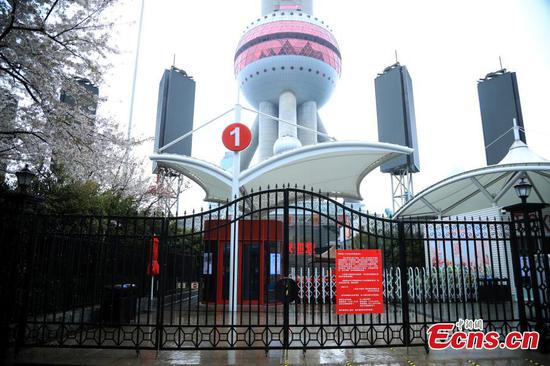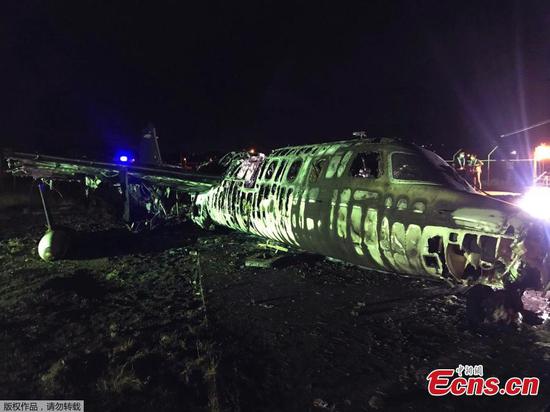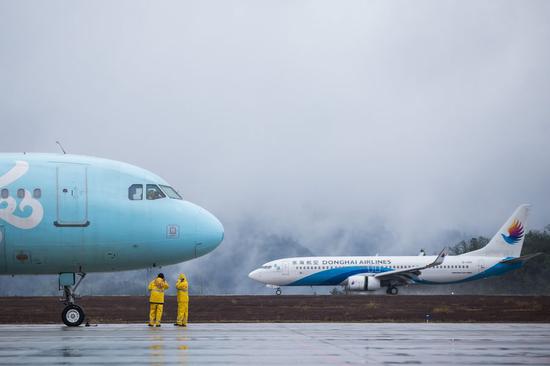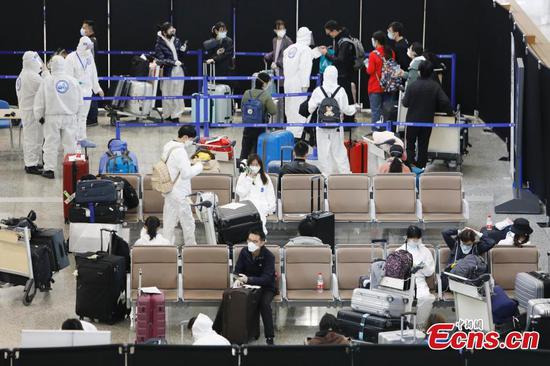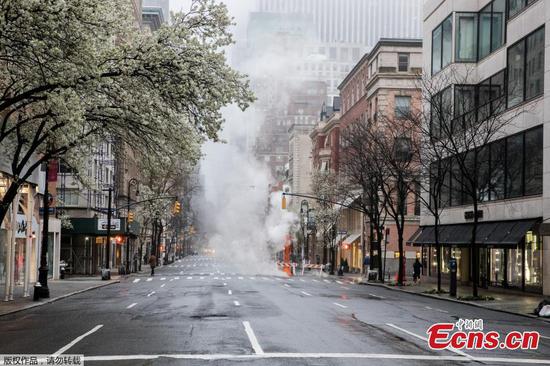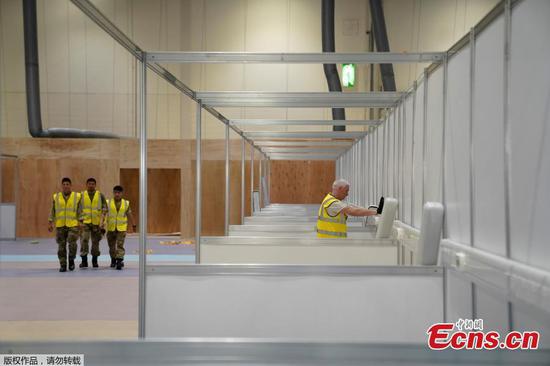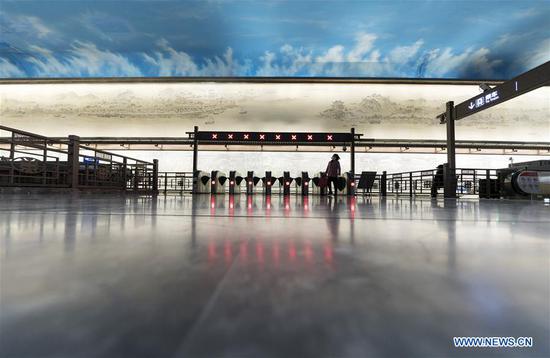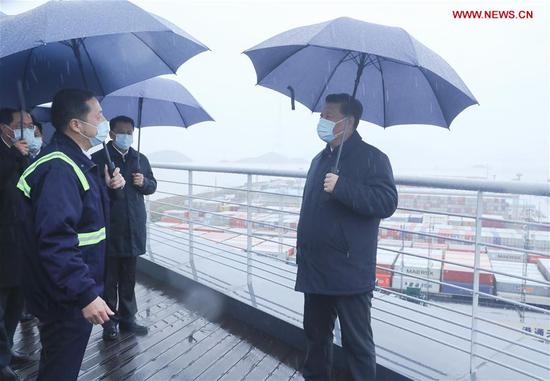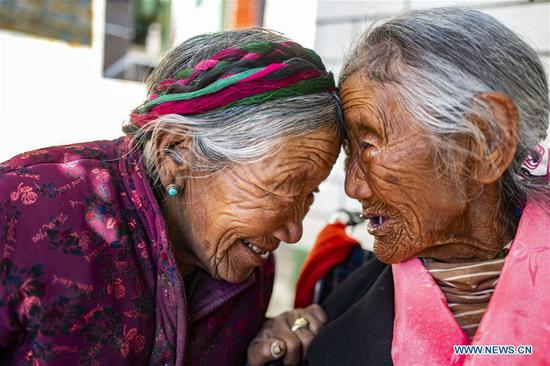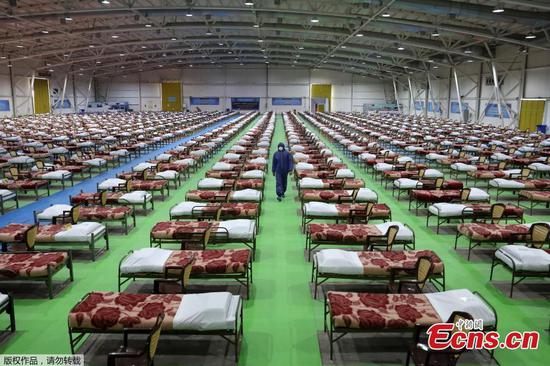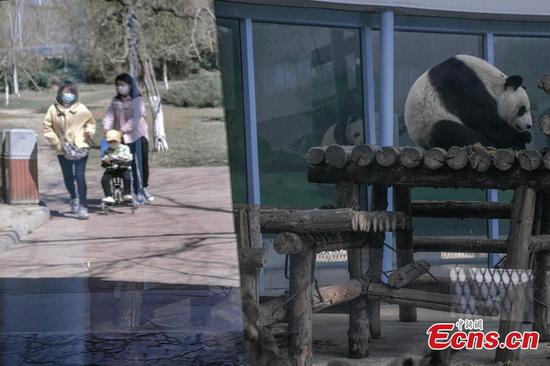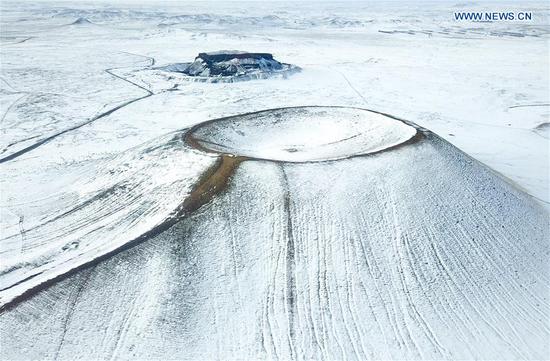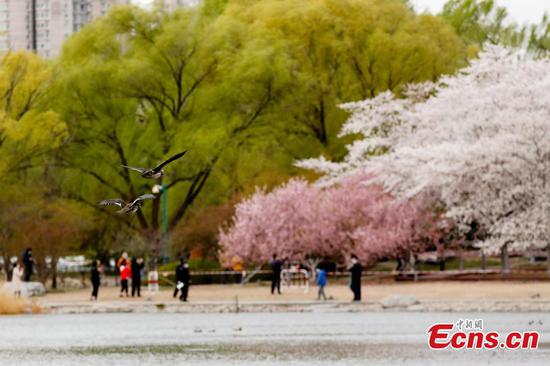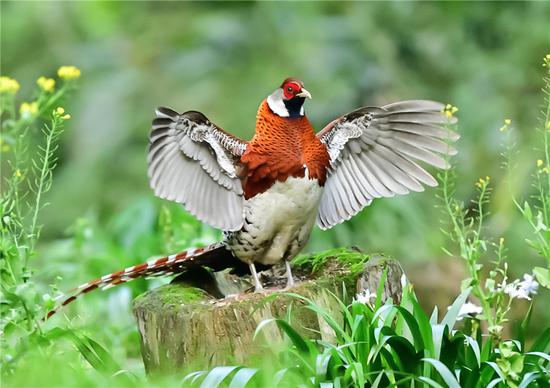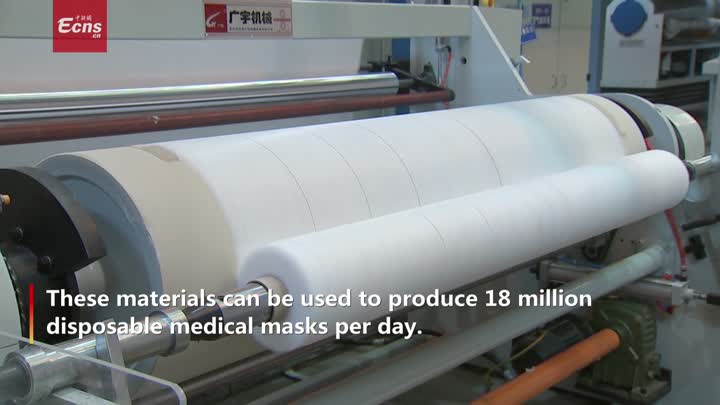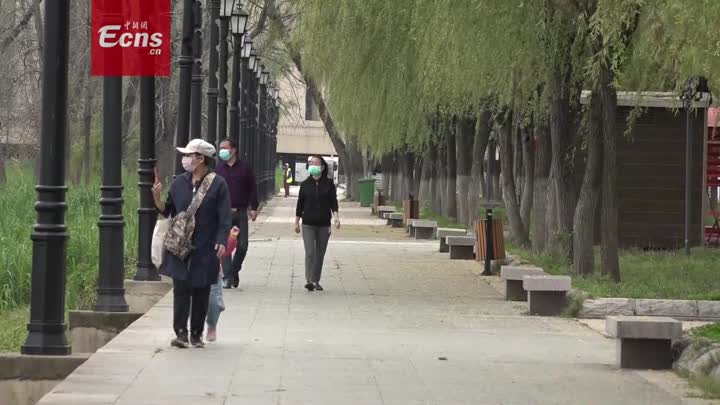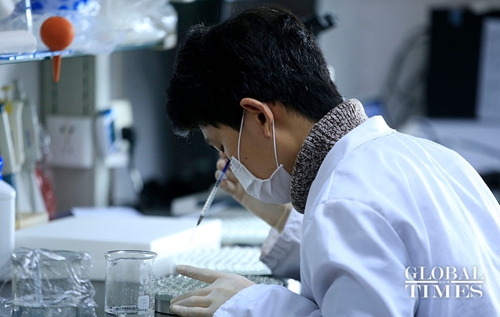
A scinetist is doing research on a vaccine against COVID-19 in Shanghai. (Photo:Yang Hui/GT)
Phase I clinical trials for COVID-19 vaccine to be completed in six months
Four Wuhan volunteers for Phase I clinical trials for a COVID-19 vaccine ended a 14-day quarantine on Tuesday and blood samples were taken from them to test if anti-bodies were created after being injected on March 17.
Four volunteers were released from quarantine on Tuesday. Home quarantine afterward is no longer needed, but further observation and interviews with the expert group will be required on Day 28, and during the third and sixth months after the injection, the Global Times learned from volunteers.
The recombinant vaccine was developed by Tianjin-based biotechnology company CanSino Biologics Inc. and a research team headed by Chen Wei, a People's Liberation Army (PLA) major general and expert in biological hazard prevention and control from the PLA Academy of Military Medical Sciences.
The development of the vaccine involved inserting the novel coronavirus' DNA encoding antigen into other microorganisms to create a new virus, which will not infect receivers with the disease, experts said.
"The research team said the test results were not known today because blood samples need to be sent to a special agency for testing. As this study is a clinical trial, we will not be informed of the antibody test results in principle, but we can also ask for it if we want to know," Jin Guanping, a female volunteer in the trial, told the Global Times on Tuesday.
The Phase I clinical trials will be completed in six months, Jin learned from the research team.
Phase II and III trials will focus on the effectiveness of the vaccine, and detailed studies of indicators, such as the ability of antibodies to neutralize the virus, with wider samples, a Beijing-based immunology expert who requested anonymity told the Global Times on Tuesday.
Antibody testing is done primarily by drawing blood. Antibodies found in a volunteer's blood sample could provide preliminary evidence of the vaccine's effectiveness, the Beijing-based immunology expert said, noting that ELISA and Western blot techniques are most likely used for tracking the antibodies.
Antibodies are usually produced 96 hours after injection. The process of tracking the antibodies in the blood samples can take from half an hour to four hours depending on the test method used, the expert said.
"The likelihood of adenovirus-related adverse reactions in volunteers was extremely small. Because the adenovirus vector should have been modified with a high level of safety, it is not contagious," the expert said.
Recruiting volunteers from Wuhan residents between 18 and 60 for the Phase I clinical trials is closed for all three groups with different doses of shots.
Depending on different entry times, the schedule of the volunteers' isolation period varied. The last group of about seven or eight volunteers went into quarantine in recent days, Global Times learned from volunteers.
The research teams appealed for volunteers for the Phase I trial on March 17 after gaining approval on March 16.
"I have been in a good mood and healthy over the past 13 days. Some volunteers experienced a mild rise in body temperature early on, but few have reported significant discomfort in our online group chat later. No volunteers were heard to have asked to drop out of the trial," Zhu Aobing, a 28-year-old volunteer who was in the group receiving the lowest dose, told the Global Times on Tuesday. He received his first dose on March 19.
Researchers can track continuous real-time data and capture any irregular changes as each person's temperature is monitored 24/7 by a device attached to their armpits in the first seven days after their injections, Jin said, adding that they need to be recorded if the body temperature exceeds 37.2℃.
One or two medical workers visit volunteers every day to closely check on their physical condition and ask about adverse reactions, Zhu said, adding that he only had one blood drawn on Day 7 without more inspections in the past 12 days of quarantine.
"Catering is rich in nutrition with shrimp, steak, ribs, and fish frequently seen in their meals with four dishes and a soup, all delivered without physical contact," Zhu said.
Quarantined volunteers discuss music and movies, and exchange entertainment with each other in an online WeChat group every day. People seemed relaxed and conformable without much fear or concern, Zhu said.
The Global Times noted that a few of the volunteers updated their posts on Sina Weibo in response to many netizen's concerns about their health. Some even danced or practiced yoga in their quarantine rooms.
On March 30, the last day of Jin's quarantine, Chen Wei came to visit her, and thanked volunteers for participating in the clinical trial. "She said it is good for us to share our stories and genuine feelings with others as the first group of participants," Jin told the Global Times.
The purpose of Phase I clinical trials is to certify the vaccine's safety. But the vaccine's overall safety and efficacy are usually determined after all phases of the clinical trials. But given the current emergency, the process is very likely to accelerate, with some experts even calling for Phase II and III clinical trials to be skipped, the Beijing-based immunology expert said.
Even after the vaccine hits the market, research teams still need to follow up for close observation and monitoring.
However, vaccines will mainly be used for a possible resurgence or a new outbreak of the epidemic, as the current outbreak is likely to fade as the weather gets warmer, public immunity improves and effective control measures are implemented, the expert noted.









